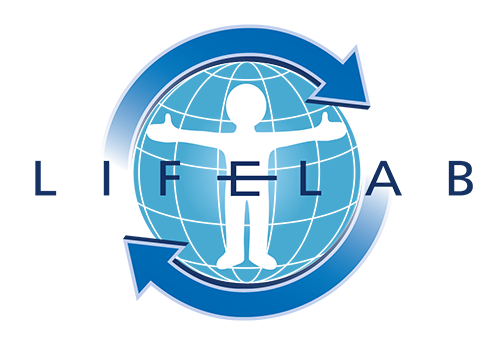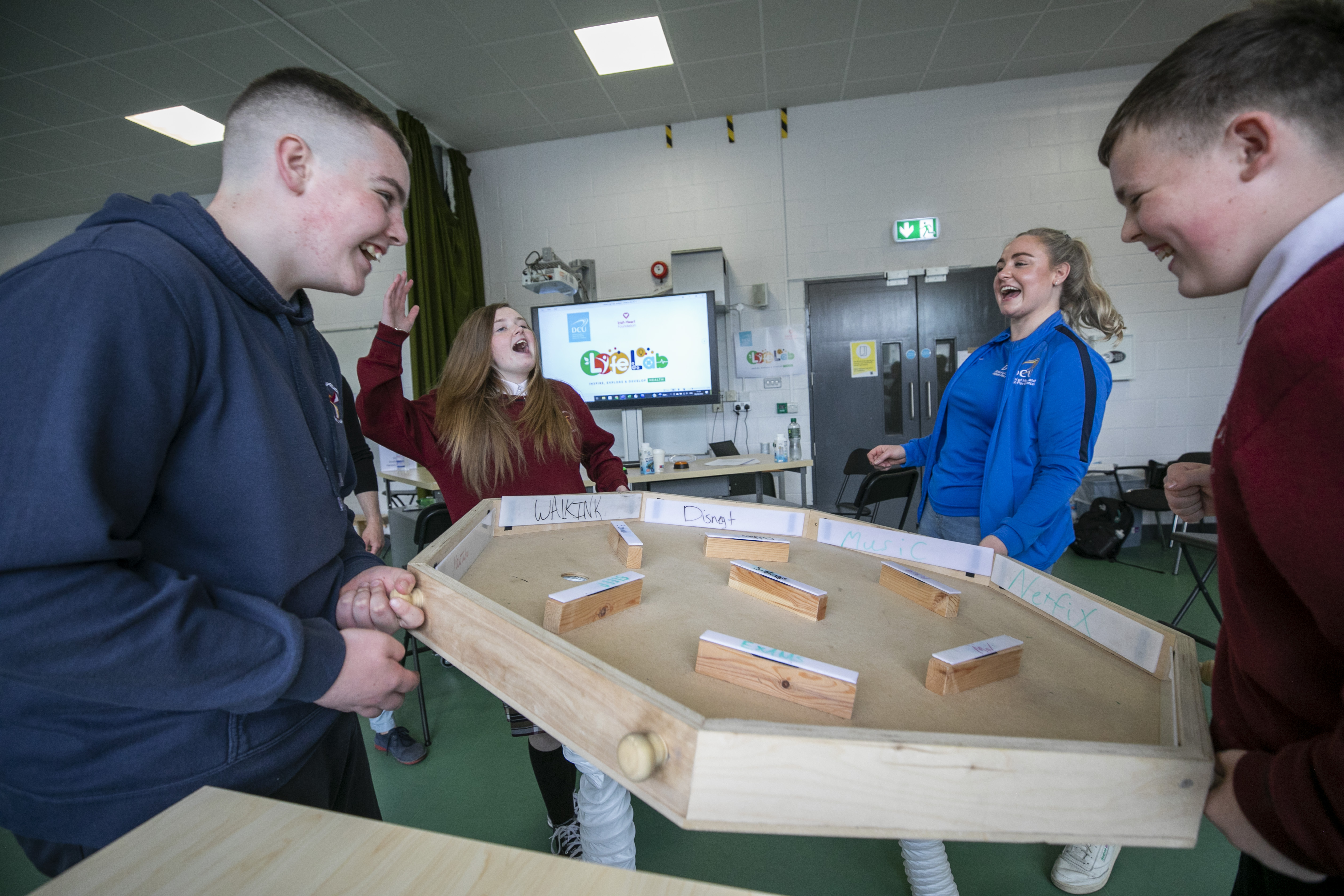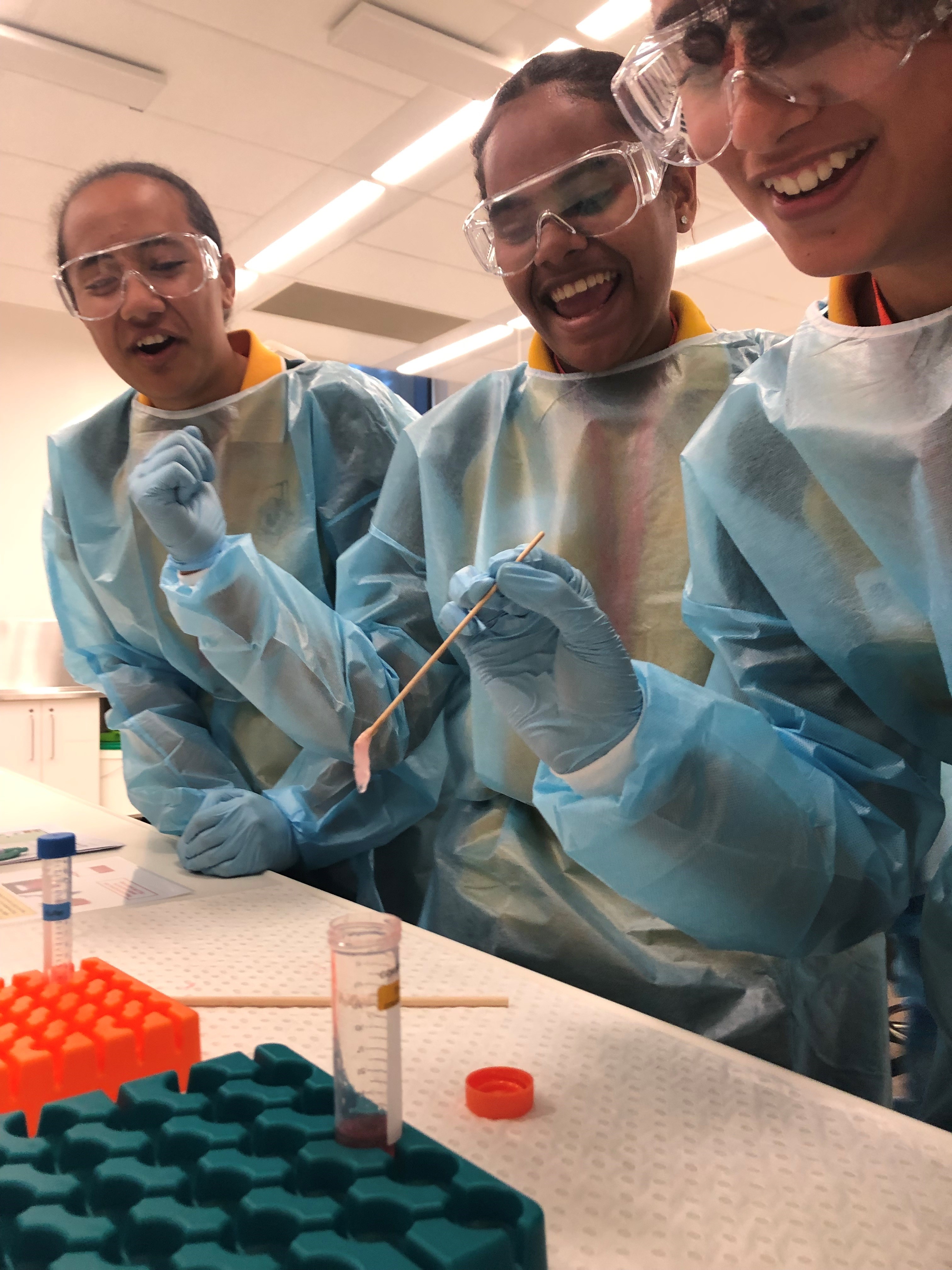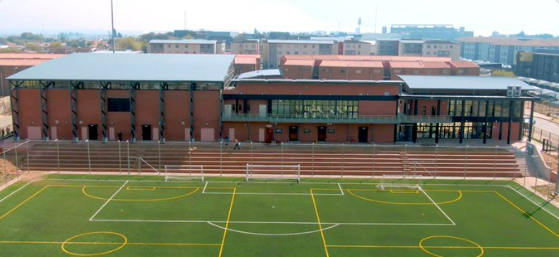
Going Global
Ensuring young people engage with and are able to consider how to take responsibility for, their own health and health decisions is vital in any community, country or continent. LifeLab is growing a global network of partner organisations who are taking the programme messages, aims and resources to young people around the world with resounding success.
“In growing the LifeLab family worldwide, what we have found so significant is that despite cultural, socioeconomic, age and curriculum differences, what LifeLab promotes in terms of health engagement resonates very strongly with the young people involved no matter where they live,” said Kath Woods-Townsend, LifeLab Director here in the UK.
LifeLab programmes are now running in Dublin, Ireland, Sydney, Australia and Soweto, South Africa.
“We have worked with our global partners to provide not only the physical LifeLab resources and programme structures, but also our experience with securing funding, engaging local health and political organisations and working with schools to enable their journey to deliver LifeLab to be as smooth as possible,” said Kath. “It has been an educational process for all of us involved to see the assessing and amending of LifeLab to fit different cultural contexts and curriculums.”
Dublin
Based at Dublin City University, LifeLab in Ireland started in 2019, funded by the Irish Heart Foundation, and similarly to the University of Southampton programme it has a key focus on students from disadvantaged communities.
Dr. Hannah Goss is an Assistant Professor in Physical Activity Behaviour Change in the School of Health and Human Performance at the University and works on the LifeLab implementation. “LifeLab in Ireland was born out of the need for schools to deliver a Wellbeing programme for those aged between 12 and 16, but with little or no guidance provided on what should be taught in those hours,” explained Hannah.
Three years of co-design work led to a pilot of LifeLab Dublin in 2022, and over 300 students have already taken part in the programme. “The LifeLab experience of in-school lessons coupled with offsite experiential visits was the perfect fit and we worked with the team in Southampton to recreate their work here, tailored for our education system,” she said.
Feedback from young people and teachers has been positive, one recent student said, “I like LifeLab because it’s fun to learn in a different way. Instead of learning something off a whiteboard, we get to learn physically as well. We’ve learnt about how to get healthy, and what can cause you to get unhealthy. People should have to learn about this…otherwise you can’t change”.
Ciaran Norton, a Social, Personla and Health Education teacher outlined: “The main advantages we’ve found with bringing students into LifeLab are that children get to talk about things that really involve them, things that affect their own lives. Whether it’s physical health, emotional health, things like sleep, using mobile phones, substance misuse…all different things. It’s important for those kids to talk about it, and really get involved and interact in activities that explore these topics.
“We’ve really noticed that LifeLab gets young people out of their comfort zones. In a classroom setting, there’s only so much we can do, so getting them down here, getting them involved, we’ve really seen the development in them asking questions and seeing how they think about these things.”
The co-design, implementation and evaluation of LifeLab Dublin continues in 2023, and our next challenge is to scale up to a wider audience.
Sydney
Based out of a research institute, LifeLab in Australia is funded by a local health district which differs to the UK model.
“The Sydney Institute for Women, Children and their Families is a central hub for research, evaluation, education and policy related to the health and social wellbeing of women, children and their families,” explained Eva Breidenbach, LifeLab Program Manager at New South Wales Health. “We have partnered with the University of Sydney and schools in our district to roll out the LifeLab programme. We worked closely with teachers in our district at an initial consultation stage to review all the fantastic UK resources and amend them to work in our cultural context and curriculum.”
LifeLab Sydney has been running for 18 months with over 150 students with an average age of 14 years taking part in the pilot phase across four local government schools. 93% of students responding to the survey stated that what they have learnt will have an influence on how they will manage their health in the future. Those encouraging results coupled with overwhelmingly positive feedback from all stakeholders led to the program receiving further funding for the next 27 months to build on this initial success.
The school system in Australia is such that teachers have to plan work almost 12 months in advance, meaning the LifeLab team has to recruit and engage schools early.
“The next tranche of funding is key as we now know we have to be engaging with science teachers well ahead of their lesson planning for the school year,” said Eva. “With this knowledge we are hoping we will be able to sign up many more schools for the coming years and take the LifeLab programme beyond Sydney health district borders.”
The New South Wales Department for Education supports this strategy, Amanda Said, Networked Specialist Facilitator at the NSW Department for Education said: “I’m looking forward to seeing other schools engage in the programme next year, and in years to come. It’s a great way to promote healthy living, making healthy choices and the science curriculum in schools.”
Soweto
According to a recent report by the Equal Education Law Centre in South Africa (2022), many township schools are ill-resourced and ill-supported to give children even a bare minimum education. Dr Lisa Ware, University of Witwatersrand Senior Researcher at the Wits Health HUBB in South African Soweto township explained, “That is why we decided to take the LifeLab model outside of schools and apply it to an older age group of 18 to 24 year olds, we have seen some great success.”
LifeLab in South Africa has been funded by the DSI-NRF Centre of Excellence in Human Development hosted by the University of the Witwatersrand and brought to life in collaboration with a Youth Community Development Centre based in Jabulani, a densely populated area of Soweto, with a high population of young people facing many struggles.
Lisa and her team worked with LifeLab in Southampton to create a Youth Health Council at the Centre, 40 young people joined focus groups and discussed what health meant to them and what needs they had in terms of health information.
“The focus groups revealed health was a low priority for the young people, particularly men, who had a strong focus on employment, money and family,” explained Lisa. “The common thread from all the groups was that levels of stress were high for young men and women, worrying about the day-to-day struggles of life in a township such as Soweto.”
As a result the first LifeLab South Africa self-learning exhibition was created to educate and inform young people about the negative effects of stress.
“The focus groups gave us the topic idea, and we created an information booklet to hand out and a series of interactive experiments for young adults at the Youth Centre to explore how stress can affect your mental health, cognitive function, sleep, eating behaviours and so on,” said Lisa. “The quantitative feedback from questionnaires and qualitative feedback from on the ground has all been overwhelmingly positive and we are now looking at rolling out the idea to a larger network of Youth Centres across the region.”
Best Practice
LifeLab is continuing to grow and spread its reach further around the world. In doing so more young people benefit, not only from being able to participate, but by having access to continuously improving resources and ideas from best practice sharing across the network.
“The next step for us is to leverage the power we have as a collective, to enable LifeLab to benefit more young people,” said Kath. “Health literacy is always going to be a priority and we know what we do works and makes a difference so we want to take that as wide as we can.”
 Students in LifeLab Dublin
Students in LifeLab Dublin
 LifeLab Sydney students extract strawberry DNA
LifeLab Sydney students extract strawberry DNA
 Youth Development Centre in Soweto
Youth Development Centre in Soweto